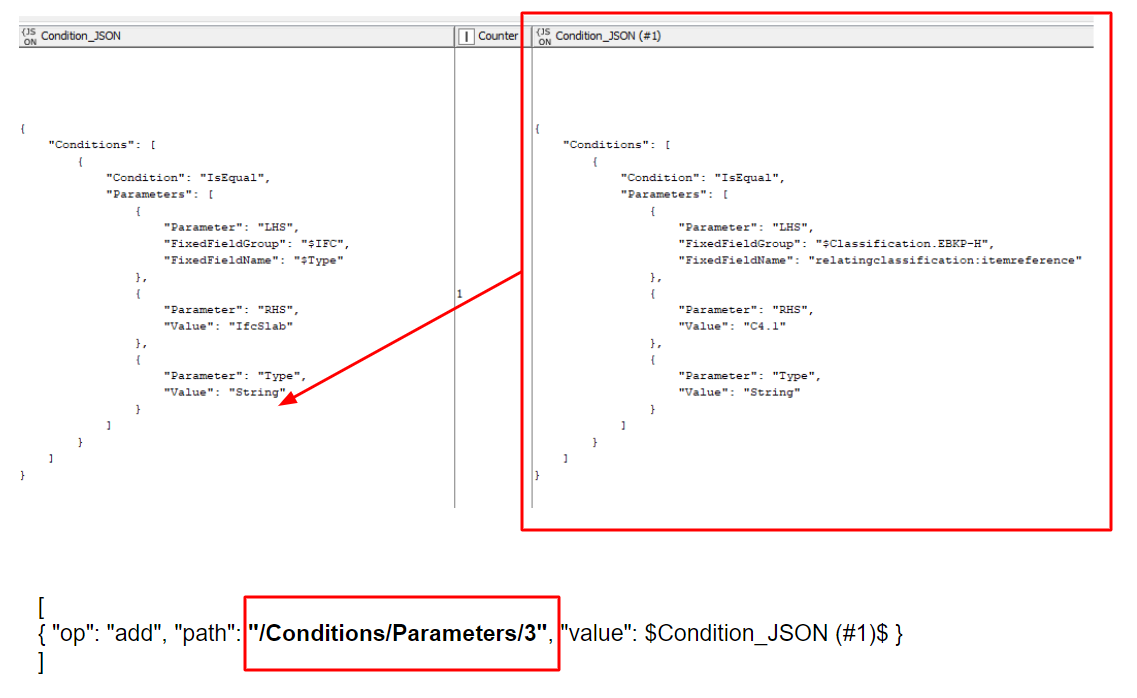This project, as of version 1.4, is licensed under both LGPLv3 and ASL 2.0. See file LICENSE for more details. Versions 1.3 and lower are licensed under LGPLv3 only.
Note the "L" in "LGPL". LGPL AND GPL ARE QUITE DIFFERENT!
This is an implementation of RFC 6902 (JSON Patch) and RFC 7386 (JSON Merge Patch) written in Java, which uses Jackson (2.2.x) at its core.
Its features are:
- {de,}serialization of JSON Patch and JSON Merge Patch instances with Jackson;
- full support for RFC 6902 operations, including
test; - JSON "diff" (RFC 6902 only) with operation factorization.
The current version is 1.13. See file RELEASE-NOTES.md for details of releases before 1.11.
With Gradle:
dependencies {
compile(group: "com.github.java-json-tools", name: "json-patch", version: "yourVersionHere");
}With Maven:
<dependency>
<groupId>com.github.java-json-tools</groupId>
<artifactId>json-patch</artifactId>
<version>yourVersionHere</version>
</dependency>Versions before 1.10 are available at groupId com.github.fge.
When computing the difference between two JSON texts (in the form of JsonNode instances), the diff
will factorize value removals and additions as moves and copies.
For instance, given this node to patch:
{ "a": "b" }in order to obtain:
{ "c": "b" }the implementation will return the following patch:
[ { "op": "move", "from": "/a", "path": "/c" } ]It is able to do even more than that. See the test files in the project.
RFC 6902 mandates that when testing for numeric values, however deeply nested in the tested value, a test is successful if the numeric values are mathematically equal. That is, JSON texts:
1and:
1.00must be considered equal.
This implementation obeys the RFC; for this, it uses the numeric equivalence of jackson-coreutils.
You have two choices to build a JsonPatch instance: use Jackson deserialization, or initialize one
directly from a JsonNode. Examples:
// Using Jackson
final ObjectMapper mapper = new ObjectMapper();
final InputStream in = ...;
final JsonPatch patch = mapper.readValue(in, JsonPatch.class);
// From a JsonNode
final JsonPatch patch = JsonPatch.fromJson(node);You can then apply the patch to your data:
// orig is also a JsonNode
final JsonNode patched = patch.apply(orig);The main class is JsonDiff. It returns the patch as a JsonPatch or as a JsonNode. Sample usage:
final JsonPatch patch = JsonDiff.asJsonPatch(source, target);
final JsonNode patchNode = JsonDiff.asJson(source, target);Important note: the API offers no guarantee at all about patch "reuse"; that is, the generated patch is only guaranteed to safely transform the given source to the given target. Do not expect it to give the result you expect on another source/target pair!
As for JsonPatch, you may use either Jackson or "direct" initialization:
// With Jackson
final JsonMergePatch patch = mapper.readValue(in, JsonMergePatch.class);
// With a JsonNode
final JsonMergePatch patch = JsonMergePatch.fromJson(node);Applying a patch also uses an .apply() method:
// orig is also a JsonNode
final JsonNode patched = patch.apply(orig);






